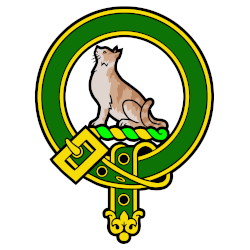Consequences is a Retrieval Artist novel. The series (with two previous books) is set in a universe where humanity interacts on a regular basis with many alien cultures of varying degrees of strangeness. Many of these alien cultures have strange laws or taboos that humans can be subject to horrible penalties for violating – whether they know that they are violating the alien’s laws or not.
This conflict of interest has spawned a small, but significant, industry: making people “disappear” for the purposes of evading the consequences of breaking an unjust (by human standards) alien law. Unlike typical criminals, the “disappeared” are usually respected and wealthy people who can afford to pay exorbitant fees in order to start life over – simply because those who are not rarely have the opportunity to violate alien taboos. The law doesn’t look too hard for them… but the aliens themselves usually do, and if found, justice is applied on the spot.
But sometimes it’s necessary to find one of the Disappeared for a legitimate reason. Maybe the sentence has been lifted, or a family wants to be reunited. That’s when you need a Retrieval Artist: someone who can bring back the Disappeared, without putting them in harms way. And that’s how Miles Flint has made his living since he left the police force; finding people and sometimes bringing them back, then hiding them again if necessary. But it’s rarely that simple.
In Consequences, a diplomatic visit from Etea strikes sparks throughout the Armstrong Dome on the moon. As recently as 10 years ago, the planet was fighting a four-sided civil war: two human factions and two alien races all entangled in bloody, sometimes genocidal, conflict. The human rebels on the planet won, have set up a government, and would like to be admitted into the alliance of planets. They’ve sent a diplomatic mission to the Moon to plead their case. The only problem is, the diplomatic mission is made up of people the police view as terrorists.
As if that wasn’t enough, the last person Miles Flint retrieved has turned up dead – along with 3 out of 4 known Disappeareds related to the Etea civil war. If you’re thinking there might be a connection… you’d be right.
Overall, the novel is mediocre, not quite as good as the earlier two novels but not uninteresting. It attempts to embrace a moral ambiguity similar to that in Iain Banks’ Use of Weapons, but falls short at crucial points, leaving the reader with the sense that the events were intended for a much greater emotional impact than they actually delivered. Several plot threads are left dangling, and there are additional viewpoint characters whose motives and actions are almost irrelevant to the main plot and almost completely inscrutable.
If you’re a fan of the Retrieval Artist novels, this one is OK. It doesn’t deliver the same punch as the first two, and it’s not written with the same attention to detail; like a strict diet, the reader is left feeling unfulfilled after he finishes. New readers would be better advised to start with either of the previous novels and to skip this one unless they really enjoyed the others.
